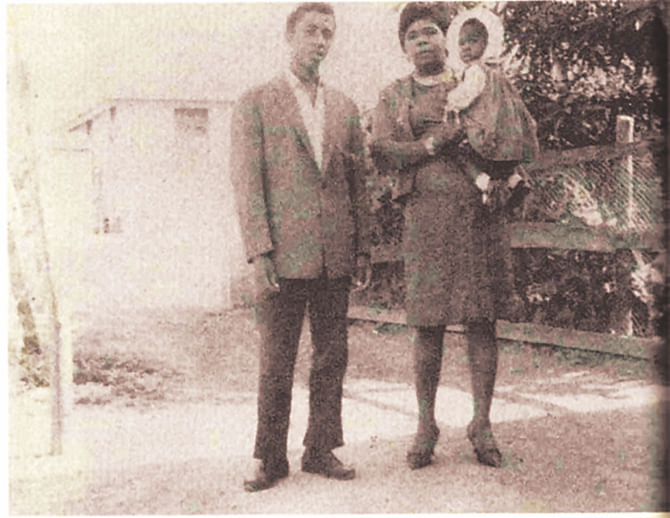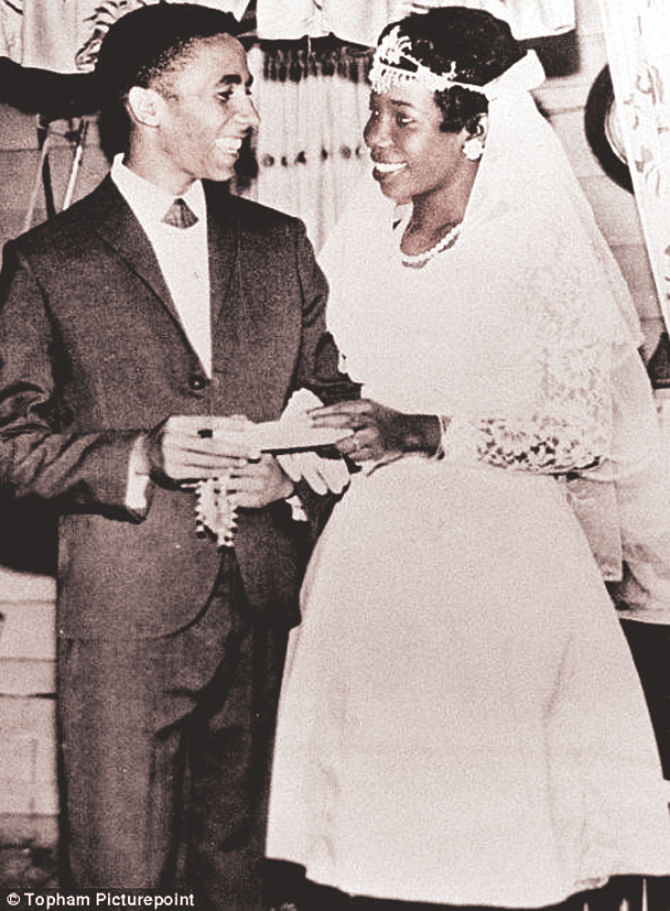Marley Vs Marley

Tall, imperious and imposing, especially on horseback, Captain Marley roamed the plantations of Jamaica bedding many of the teenage daughters of the estate workers he was supposed to oversee.
According to local gossip, he seems to have been a British naval captain who came from Essex and had once served in India, but he ended up working for the British colonial service in the Jamaican backwoods in the Forties.
Captain Marley's brief liaisons resulted in a number of children. And one of his lovers was 18-year-old gospel singer Cedella Booker.
Their son, Robert Nesta Marley was born in 1945 and spent his formative years living in considerable poverty in the slums of Jamaica.
When he was growing up, Bob looked so different from his black family that he was often known as “the German”, because in contrast to them he looked somewhat European.

Feeling an outsider in both the black and white communities, his isolation became the driving force behind his will to succeed.
Norval Sinclair Marley, born in the UK in 1885, was rarely talked about, even by those closest to his reggae star son.
“The guy didn't exist. There was a photograph of him on a horse, a white man on a horse," said actress Esther Anderson, who became Bob Marley's girlfriend in the 1970s.
Bob himself rarely talked about his father, she said, and when he did it was in often scathing terms.

Now, for the first time, filmmaker Kevin Macdonald has put a face to Bob's philandering father. He can be seen in a photograph out in the fields, on horseback as usual, ready to throw his weight around with the workers.
Macdonald also found a rare picture of Bob. Tall and skinny, the teenager had a short back-and-sides haircut in the days before he discovered dreadlocks.
His thin face reflects many of his father's aquiline features -- not that young Robert had much chance to discover that for himself as Captain Marley did not tarry long after his son's birth. There was little contact between father and son as the boy was growing up.
Capt Marley was about 60 when he met Cedella Malcolm. The couple separated soon after Bob's birth in February 1945.
Then, when Bob was just ten, Captain Marley died suddenly of a heart attack.
His mother Cedella, still only 28, was left in such extreme poverty that she was forced to make her way to Jamaica's capital, Kingston, in search of work, leaving her young son with her family.
Bob eventually followed her to Kingston, where they settled in a corrugated-iron shack in a street with open sewers in the Trenchtown area, one of the roughest parts of the capital.
Here, he was confronted in the starkest terms with the reality of his mixed parentage.
He was taunted mercilessly by his peers for standing out from the crowd. Indeed, he longed so much to fit in that, as his 65-year-old widow Rita has recently revealed, he used to black his face with boot polish. She says he even married her -- when he was 21 and she 19 -- because, unlike him, she was completely black.
Bob believed and used to say “When one door is closed, don't you know, another is open”. His found his open door -- music. “One good thing about music, when it hits you, you feel no pain,” he famously said.
Aside from his struggles for acceptance, he had yearning to sing, to play his guitar. His musical talent would propel him to super-stardom as one of the biggest record industry earners of all time and one of the demi-gods of popular music from the 70s to the present day.
Today, more than 30 years after his death, people still sings his Redemption Song: “Emancipate yourselves from mental slavery/None but ourselves can free our minds.”
Capt Marley, the white man on a horse, in the meantime disappeared into the shadows of history, but his last name would of course never quite be forgotten. His son has ensured it.
SOURCE: BBC, MAILONLINE ALL PHOTOS: COLLECTED

 For all latest news, follow The Daily Star's Google News channel.
For all latest news, follow The Daily Star's Google News channel. 



Comments